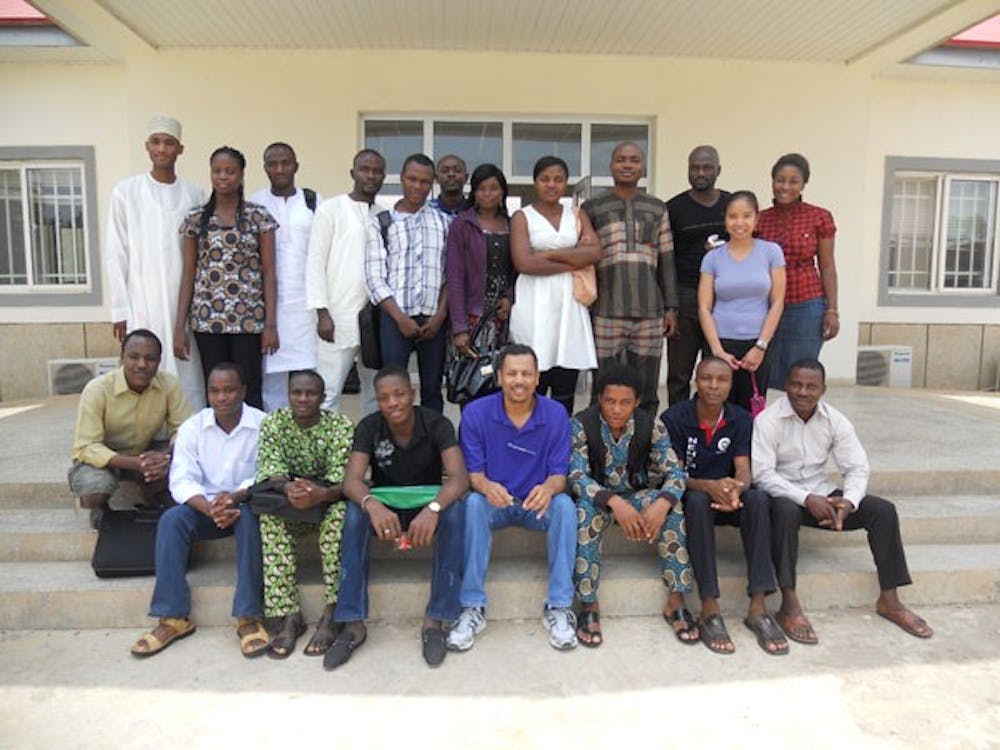 Engineering professor Terry Alford sits with a group of students he met on one of his trips to Africa. Alford and colleagues at the University use computers to help students in South Africa receive a better education, especially in science. (Photo courtesy of Terry Alford)
Engineering professor Terry Alford sits with a group of students he met on one of his trips to Africa. Alford and colleagues at the University use computers to help students in South Africa receive a better education, especially in science. (Photo courtesy of Terry Alford)An ASU professor is working closely with students and professors in Africa to raise the quality of life and education on the continent.
Terry Alford, a professor in the School for Engineering of Matter, Transport and Energy at the Ira. A. Fulton Schools of Engineering, has visited Africa more than 10 times in 15 years to advance the African education system.
“One of my … first Ph.D. students became a professor in the physics department at the University of the Western Cape,” Alford said. “I started teaching courses and collaborating with him there.”
Alford developed a tool, called a four-point probe furnace, in 1997 to determine the properties of materials used in everyday life. Researching these samples can help scientists obtain natural resources.
Professors and students in Africa can log onto the ASU website and use this tool.
“You can heat a sample up and measure electrical properties as a function of time and temperature,” Alford said.
By developing these technological advances, Alford hopes to educate and modernize the culture in South Africa.
During his visits, Alford noticed the students were motivated even though they lacked resources that most Americans take advantage of, including clean water and electricity.
“It came off very clear that the students were very appreciative and hardworking,” Alford said.
He has gained support from the faculty and administration at ASU, particularly from Kyle Squires, the director of the School for Engineering of Matter, Transport and Energy at the Ira A. Fulton Schools of Engineering.
“We value his ongoing relationship,” Squires said. “For these things to be successful there has to be a sustained commitment and Terry is truly committed.”
Alford’s task of teaching African educators and students to use modern tools to advance research and education is bettering their quality of life, Squires said.
“The new scientists that are coming up in ranks are exposed to what all other scientists in the world are,” he said.
Africa’s natural resources are unattainable unless there is a method to receive them, said James Adams, professor at the School for Engineering of Matter, Transport and Energy at the Ira A. Fulton Schools of Engineering.
“Africa is very rich in terms of natural resources,” Adams said. “However, they lack the technical ability to exploit them and take advantage of them.”
With support from his colleagues, Alford hopes to help African students and professors utilize not only their own resources, but American ones as well.
“I hope to eventually establish a pipeline between (Africa) and U.S. where students can come and do research and do their graduate training,” he said. “Hopefully they gain knowledge that they can apply to their country, but maintain collaborations to ASU or even stay here.”
Reach the reporter at cldas@asu.edu




